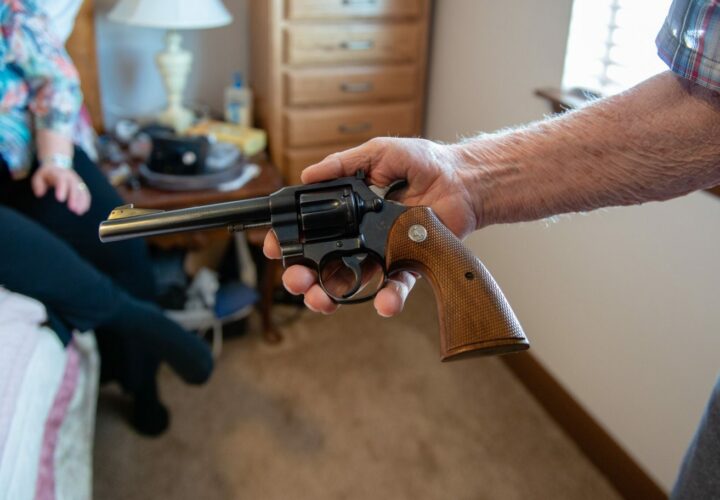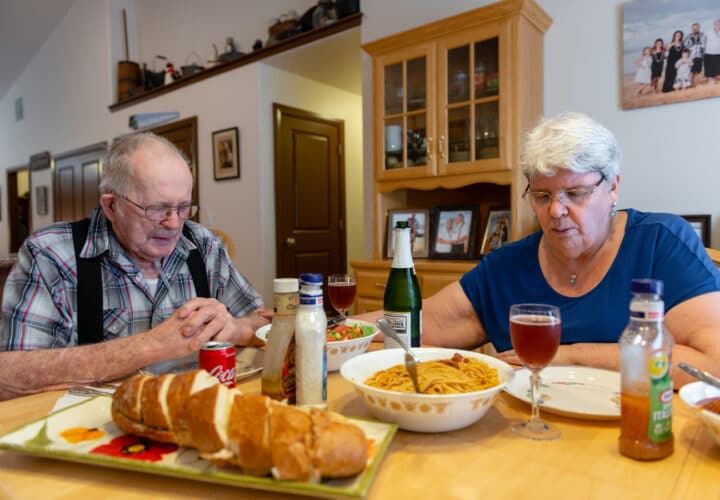A new website aims to provide dementia caregivers, clinicians and patients resources on how to remain safe when it comes to gun ownership.
When dementia strikes, it can often be difficult and emotional for patients to hang up their car keys or give up other aspects of their independent lives. Increasingly, clinicians are becoming aware that firearms, or guns, fall into that category.
A new website aims to address the issue by providing dementia caregivers, clinicians and patients resources to help them make informed decisions about how to remain safe when it comes to gun ownership.
The website, Safety in Dementia, was developed by researchers at the University of Colorado Anschutz Medical Campus and funded by the National Institute of Mental Health.
Dr. Emmy Betz, associate professor of emergency medicine at the University of Colorado School of Medicine, is a researcher who helped develop the site. Her research work on driving safety, as well as violence among older adults, is what propelled her interest in safe firearm ownership for older people.
“There comes a time when people are not safe to have unsupervised access to firearms,” Betz said in an interview with Being Patient. “It’s one thing for a clinician to say, ‘make sure he can’t get to the guns.’ But as a family member, what does that mean?”
“This website has nothing to do with gun control,” she adds. “It’s really meant to be a tool to help caregivers or people with early cognitive impairment make decisions that are right for their families.”
Steps to Ensuring Firearm Safety
The site goes through several steps and solutions for caregivers to take once they deem their loved one should not have access to guns anymore.
Those include things like keeping firearms in a lock box or locking device, or a gun safe. In some cases, removing firearms from the home entirely may be the best option—like taking them to police stations (making sure to call in advance to let them know) or gun ranges, or selling them through gun shops and retailers.
The site walks people through several questions, such as who owns the guns in the home, whether you’re a caregiver or the patient themselves and whether the gun owners want to keep their firearms or get rid of them entirely.
In some cases, gun owners with dementia may become angry or agitated if a caretaker tries to take away their guns. In this case, Betz said, there are ways to disable the guns so that the person with dementia can hold onto them without realizing they’re no longer functional.
In other cases, a person with dementia brandishing a gun in a moment of confusion may be at risk of being harmed by police officers who aren’t aware of mental illness or their disease if they’re called to the home.
Ultimately, it’s different for each case, but the website aims to provide solutions for a wide variety of people with dementia.
“I think when we think about older adults and when to hang up the car keys, that’s a very difficult and emotional decision for many people, and it can often be linked to their identify,” Betz said. “I think firearms can be similarly difficult but also have implications for your own safety and the community around you.”
Guns and Dementia: Is It a Widespread Problem?
A 2018 Kaiser Health News (KHN) and PBS Newshour report found records of over 100 cases in the U.S. involving people with dementia killing or harming themselves or others, including 15 homicides and 95 suicides.
The report described most of the shootings occurring during moments of aggression or confusion, as is common among people with dementia, and attacking spouses, children or caregivers. Some four men with dementia who were holding guns were killed when shot by police.
As the number of people with dementia rises in the coming decades, doctors and researchers have been voicing concerns about the safety issues dotting the intersection of dementia and gun ownership.
One study found that older adults were more likely to own guns than other age groups, and they were also at the highest risk for developing dementia. In that study, researchers concluded that 27 percent of people over the age of 65 own a gun, and 37 percent live in a home with a gun.
The same KHN/PBS article stated that by 2050, eight to 12 million people with dementia may be living in homes with guns.
However, Betz is quick to emphasize that “armed people with dementia are not a menace to society,” and instead that it’s important to put more resources and guidelines in place for families to address the issue early on.
“This is a big issue for a small subset of the population,” Betz said. “So for people who have both dementia and firearms, it can be a really difficult topic for the family to address, and certainly a deadly one. There’s certainly anecdotes of the person with dementia being agitated, harming themselves or a loved one, and suicide.”
The next steps for the Safety in Dementia website is to research its effects on the community—such as whether it actually changes people’s behaviors in keeping and storing firearms—and whether it has an impact on caregiver stress and feelings of support. Betz also hopes for community members to provide feedback on the site and on the types of resources patients and caregivers need moving forward.
In particular, she hopes the site is the start of a larger trend for dementia or memory care clinics, as well as larger general hospital systems or primary care clinics, to begin talking about gun safety with older people who are at a risk of dementia or may already have the disease.
“I hope to see these type of resources grow in the coming years,” Betz said. “I think there’s a lot of great room for partnership for the firearms community and the dementia community to help optimize safety, and even independence and dignity, among people with dementia, and that’s really what we’re trying to do here.”






This is an excellent resource and very much needed. Thank you for sharing! I will be reposting.
Torie Pendleton
Community Outreach Initiatives, Program Manager
Global Alzheimer’s Platform Foundation